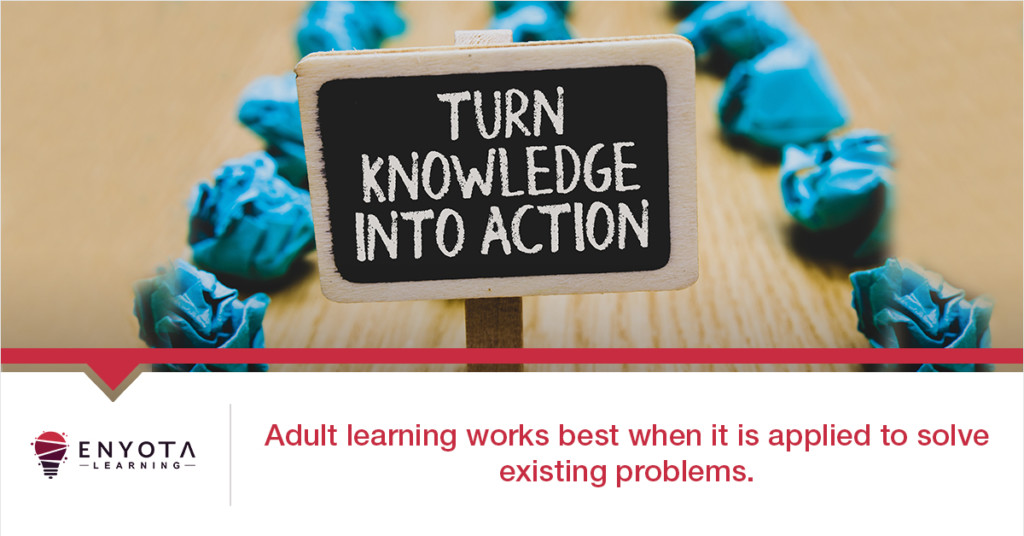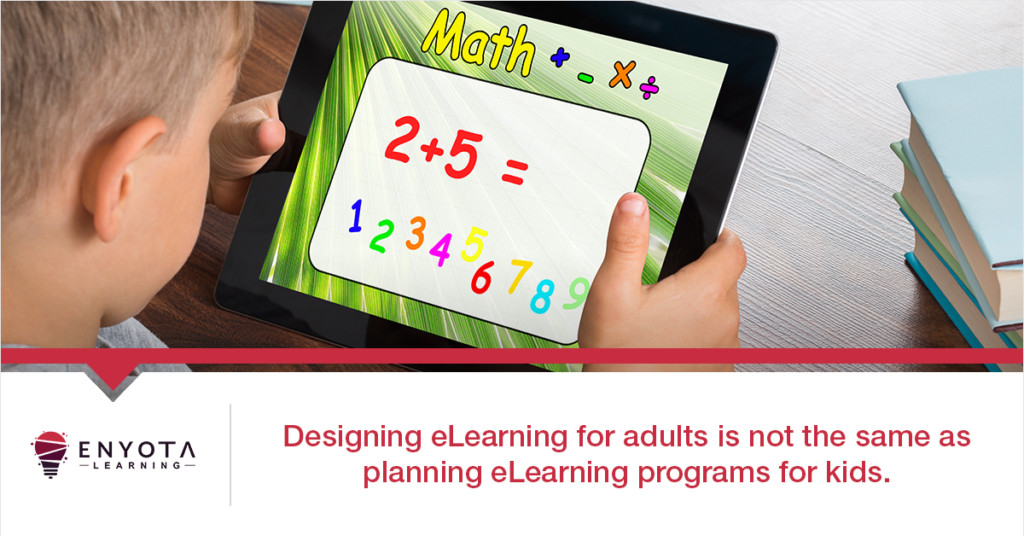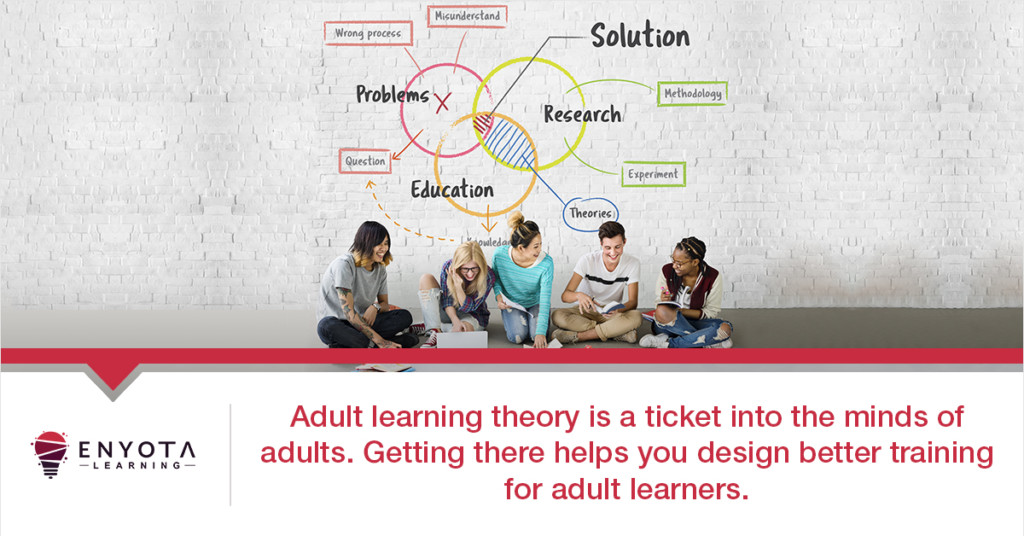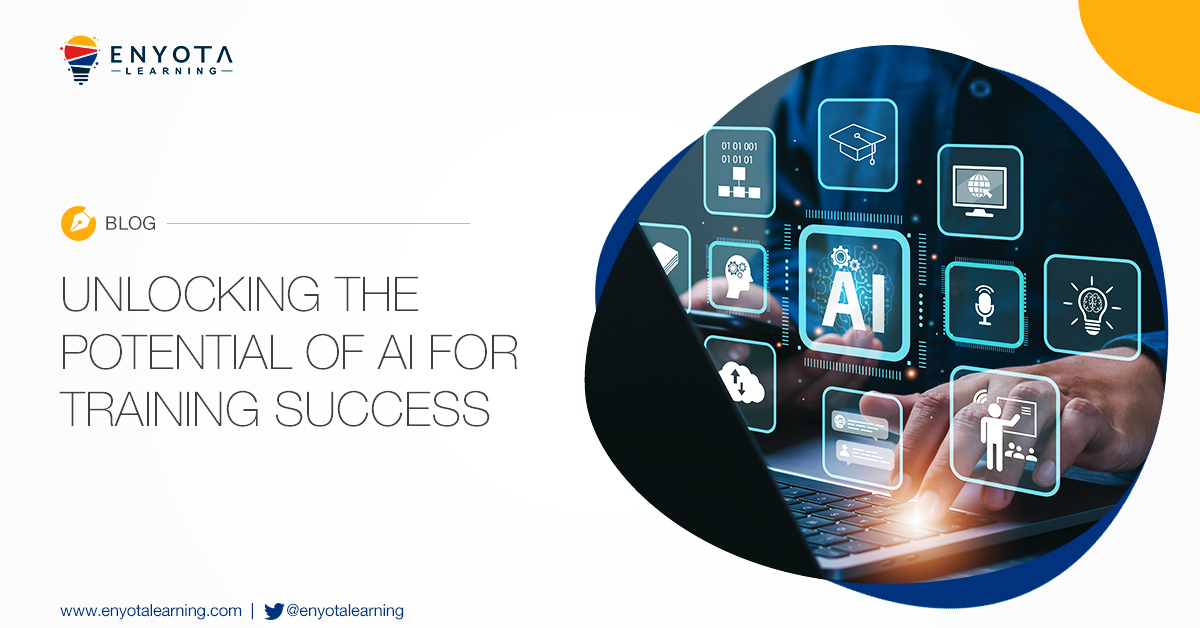What is Adult Learning Theory?
Adult learning theory focuses on how adults learn and process information, with an emphasis on the unique characteristics and needs of adult learners. A concept developed by Malcolm Knowles that aims to differentiate the learning and problem-solving abilities of adult learners from that of child learners.
The theory distinctly identifies the learning styles of adult learners and the principles of adult education so that learning and development professionals can successfully instill the motivation needed to learn and simplify the learning process for them.
Adult learning is andragogic, where the term andragogy refers to adult learning or adult training and development.
It is more about experiential learning and project-based learning as these forms of learning resonate better with adult learners.

What Makes Adult Learning Difficult According to Theory?
Age
Many adult learners assume that training and development is something they cannot pursue anymore owing to their constantly increasing age. However, the right training program allows employees to learn and grow at any age under the andragogic theory.
Lack of Practice
This problem is more likely because some adults may stop learning after a certain point in time. A sure way of recovering from this is by accepting that the learner has lost practice, and to start with small bits of content and make your way up the ladder of practice and perfection.
Training that provides an engaging learning experience will definitely break through the learner’s lack of practice barrier.
Time
The lack of time is a common problem amongst most adult learners. As a result, it appears difficult to manage training and development alongside working full-time and managing personal life. In such instances, adult learners require small bits of training which they can access in between free periods of time.
Microlearning is a concept devised for just this purpose. By breaking training into small bite-sized content bits, microlearning provides adults with the motivation to learn.

Misguided Content Style
Here, one must understand andragogy and pedagogy. The learning style and preference of adults differs from that of children. As a result, the content style delivery differs as well. A common hindrance in the adult learning process is misguided content which may appear too childish or pedagogical for the adult learner’s tastes and preferences.
Principles of Adult Learning Theory
The adult learning theory is based or built around a set of principles. These principles define the success metrics of the theory and identifies the areas or concepts that L&D teams or instructional designers must follow to establish a successful adult learning program.

Real World Experiences Count
Real world experiences make more sense for adult learners. It’s great to know the theory, but experience learning always pays off in the longer run.
Adult learners approach training with the hope of learning something that is applicable in the real world, most likely with regards to their profession. Which is why, real world experiences should always be taken into account.
Life Experiences Last Longer
Not every training program includes life experiences. The adult learning theory states that life experiences leave a more lasting and stronger impression in the minds of adult learners.
Most adult learning takes place within the spectrum of life experiences, whether positive or negative. Such experiences continue throughout the lifetime of an individual and so it forms the backbone of learning for adults.
Including training based on life experiences is something most adult learners will resonate with.
Action-Learning Improves Decisions
Being an adult require staking the right decisions. Action learning helps learners develop the ability to take decisive actions.
As adults, taking decisions at the workplace with many possible outcomes is a daily affair. Hence, adult learning should focus on the process of taking the right decisions and fine-tuning the decision-making process.
Role-Playing Simplifies Approaches
Role-playing is about placing learners in other’s shoes. By understanding somebody else’s disposition during any scenario gives the learner a better idea about how to respond to people.
Thinking from other people’s point-of-view is very important at the workplace.
Transformative Learning is Central
All training should be transformative training or it has very little value in the minds of the learners.
Training that transforms an adult’s outlook on things or situations lasts longer and is more important in terms of value to the learner, especially if it transforms their lives for good. Transformative training is central to the adult learning model.
Things to Remember When Planning Adult Learning
Andragogic vs. Pedagogic Approaches
It’s critical to remember that adult learning is an andragogic process while training children is a pedagogic approach. Pedagogic approaches are distinctly different and cannot be applied to learners. Hence, it is important to remember that each age-group of learners needs training tuned to their needs.
Reliance on Time-Saving Technologies
Adult learners are battling time shortages at every point of their lives. Hence, technologies such as mobile learning, video-based learning, microlearning, and more, all delivered on an LMS are known to assist learners who face regular shortage of time thus increasing their readiness to learn. The idea is to support their endeavor to learn and develop.
Designing Appropriate Training
The training design must appeal to learners, so must the depth and ability to delivery auxiliary training. Young learners may not thrive in an environment of information overload. But, the lack of auxiliary training may put off adult learners. Hence, design plays a big role here. Adult learners will in most cases prefer additional training content over the lack off or no additional training content.
Experience Above All
Finally, more than the knowledge transfers and examples, it is the experiential learning that helps adults retain and apply training. So, the closer you can get the training to experience delivery, maybe by using a combination of eLearning courses and simulation-based training, the better is the learning experience for adults.

How Can We Help?

Understanding adult learning theory can help trainers and educators design more effective training programs that are better tailored to the needs of adult learners. By leveraging key principles of adult learning, trainers can create programs that are engaging, relevant, and impactful, leading to better learning outcomes and more motivated learners.
Most of our clients draft our services to develop training programs for their staff. We use your content to design custom eLearning courses compatible over all modern training platforms including mobile phones. No matter the complexity of your training, we will build it.
We assist organizations by creating custom eLearning-based training content that is important for an organization looking to create a culture of learning and development. For more information on how we can help you, reach us at contact@enyotalearning.com or click here to know more. Interested in a learning management system? Try Abara LMS!




